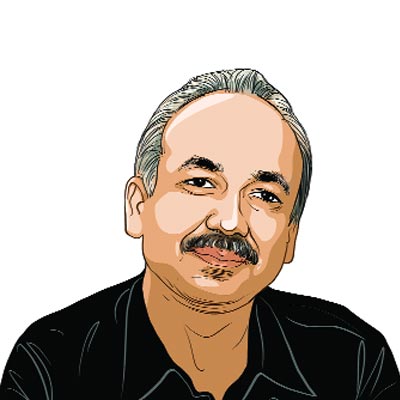Opinion That Darfur scam
Mass fury against corruption takes hold of Nepal.
Nepals peace and constitution-drafting process has suffered several setbacks,but now the fear that it could get derailed has increased manifold. Although the tenure of the Constituent Assembly has been extended by three more months from May 28,the people are coming out openly against the current political dispensation controlled by the three major parties,the Unified Communist Party of Nepal-Maoists (UCPN-M),Nepali Congress and the Communist Party of Nepal-Unified Marxist Leninist (CPN-UML).
It is a recent decision by the anti-graft body,the Commission of Inquiry into Abuse of Authority (CIAA),which has injected a sense of mass fury against the big parties. The CIAA report has absolved politicians and implicated over 30 police personnel in a corruption case involving the purchase of armed personnel carriers (APCs) for the Nepal police posted in the UN Mission in Darfur. This has infuriated the public which now calls the CIAA a tool in the hands of politicians. Family members of the implicated police officers too have come out against what they call a biased report they have asked police chiefs,present and past,to spill the beans and name the politicians who have taken kickbacks in what is now known as the Darfur scam.
The decision to purchase the APCs was taken when G.P. Koirala was the prime minister and his trusted aide K.P. Sitaula the home minister. The payment of 450 million Nepali rupees to the supplier,a British firm,in five instalments was extended over a period of three years from July 2007. That period saw two prime ministers Prachanda and Madhav Nepal and their home ministers come and go. The UN office in Darfur kept warning the Nepal government that the equipment supplied by the British firm was substandard.
The issue was not only raised by the Nepal media,but also discussed in the state affairs committee of parliament. The panel sent a group of its members to Darfur to investigate the issue. It reported that apart from top police officers,the home ministry and the political leadership must be held accountable,morally and administratively,for the scam. The CIAA refused to take cognizance of that report and absolved the government. The question being asked is: could the police have taken an independent decision on a purchase of that scale?
Since 2006,when the parliament assumed total legislative powers,power has been in the hands of the three big political parties. While they consolidated their grip on state funds,transparency and accountability in governance suffered. These were overlooked as the country went through a tough transitional phase and political parties got entrusted with the significant job of completing the peace process and drafting a new constitution.
Now,with the deadline missed and allegations of corruption on the rise,the people suspect that their new rulers are using the unduly prolonged transition to continue in power and plunder state funds and resources.
Over the past five years,development funds have been reportedly funnelled to political parties to hold their annual conferences. Major appointments in constitutional bodies and diplomatic missions have been taken over by the big three parties. Moreover,militant youth organisations like the Young Communist League and the Youth Force,affiliated to the UCPN-M and the CPN-UML respectively,decisively influence the award of major construction bids and contracts. They allegedly take a huge cut which ultimately reaches the party coffers.
Incidentally,the CIAA chargesheet in the Darfur scam came at a time when anti-corruption voices were gaining pitch in neighbouring India. The response they generated was keenly watched and acknowledged in Nepal. The CIAA report has directed the peoples anger against political parties for the first time in the past five years.
There is more to that rage. The people are realising the shortcomings in the peace and constitution-making process. Mohan Baidhya,the Maoist vice-chairman,has rebelled against party chief Prachandas move to send combatants,who are attached to senior Maoist leaders,to designated cantonments and have their arms deposited there. Parties like the Nepali Congress and the CPN-UML assert that a constitution cannot be drafted and delivered as long as the Maoists have their private army and arms.
As the people worry if the parties simply want more immunity and privileges than even the king ever exercised,the anti-corruption movement is likely to snowball into a major political upheaval.
yubaraj.ghimire@expressindia.com





